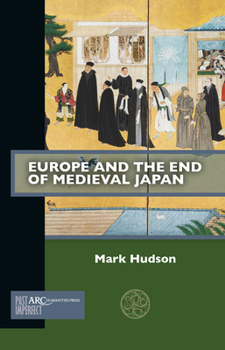Europe and the End of Medieval Japan
Japan's transition from medieval to early modern occurred at the time of an emerging global Europe. In the 1540s European traders and missionaries began a century of dynamic cultural and economic interaction with the Japanese Islands. In the midst of civil war, over 300,000 Japanese converted to Christianity and Japan became an influential location in the Counter-Reformation's reinvention of Christianity as the first global religion. At the beginning of the seventeenth century, however, unification of Japan by the Tokugawa shoguns led to persecutions and strict limits on European presence in the country. Examining a range of topics, including the relationship between Christianity and folk religion, the introduction of firearms, new crops and cuisines, and treponemal disease, this book re-evaluates Japan's transformation from medieval to early modern in a global context.
Related Subjects
History




